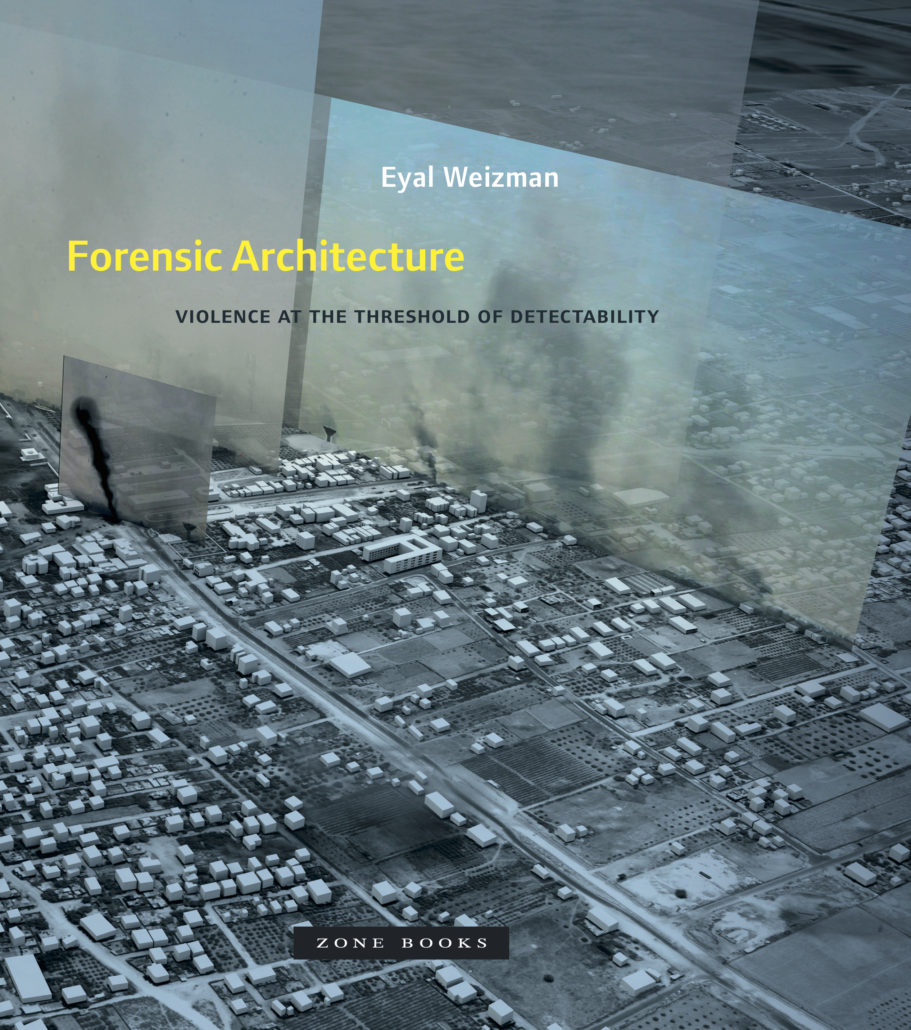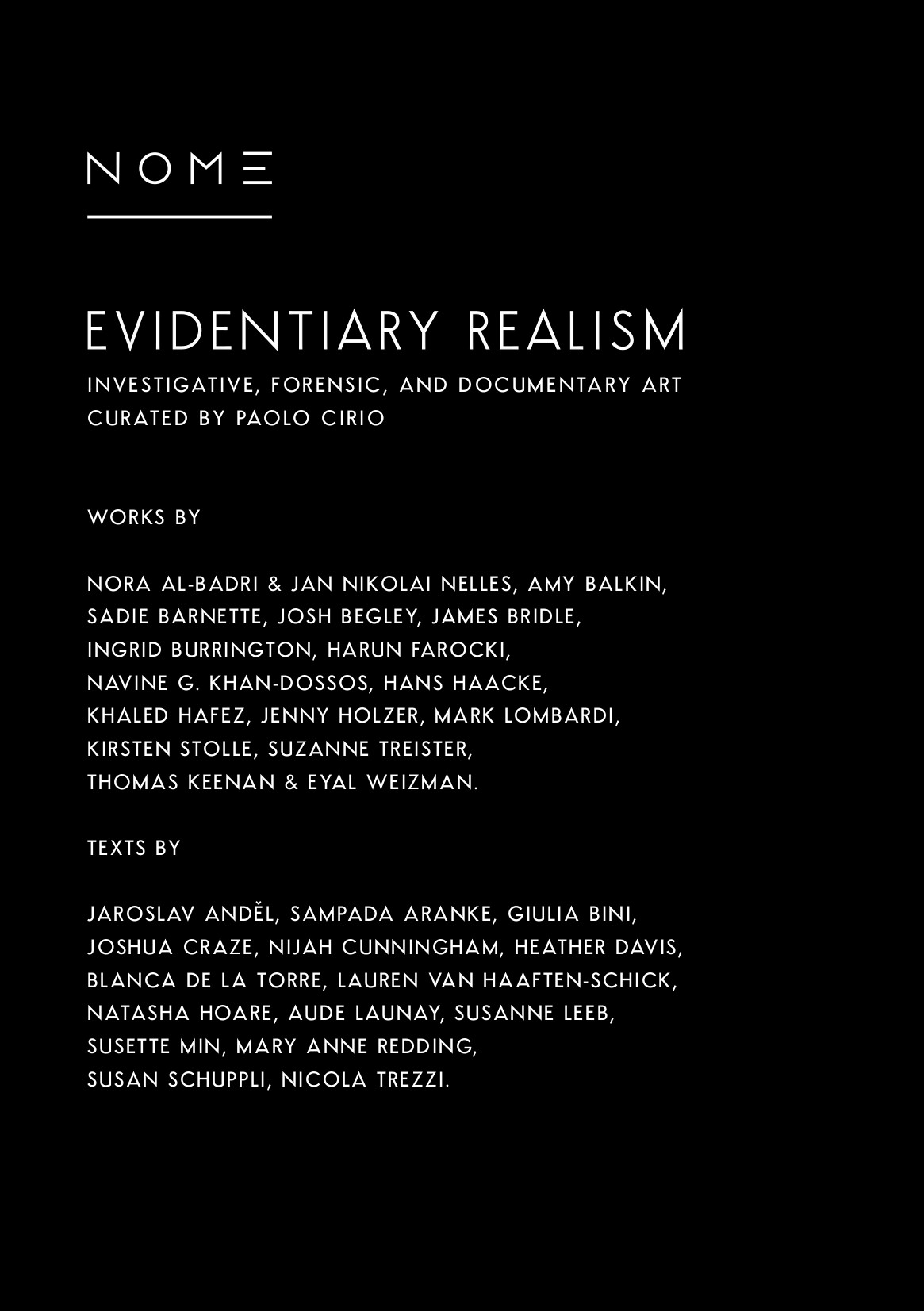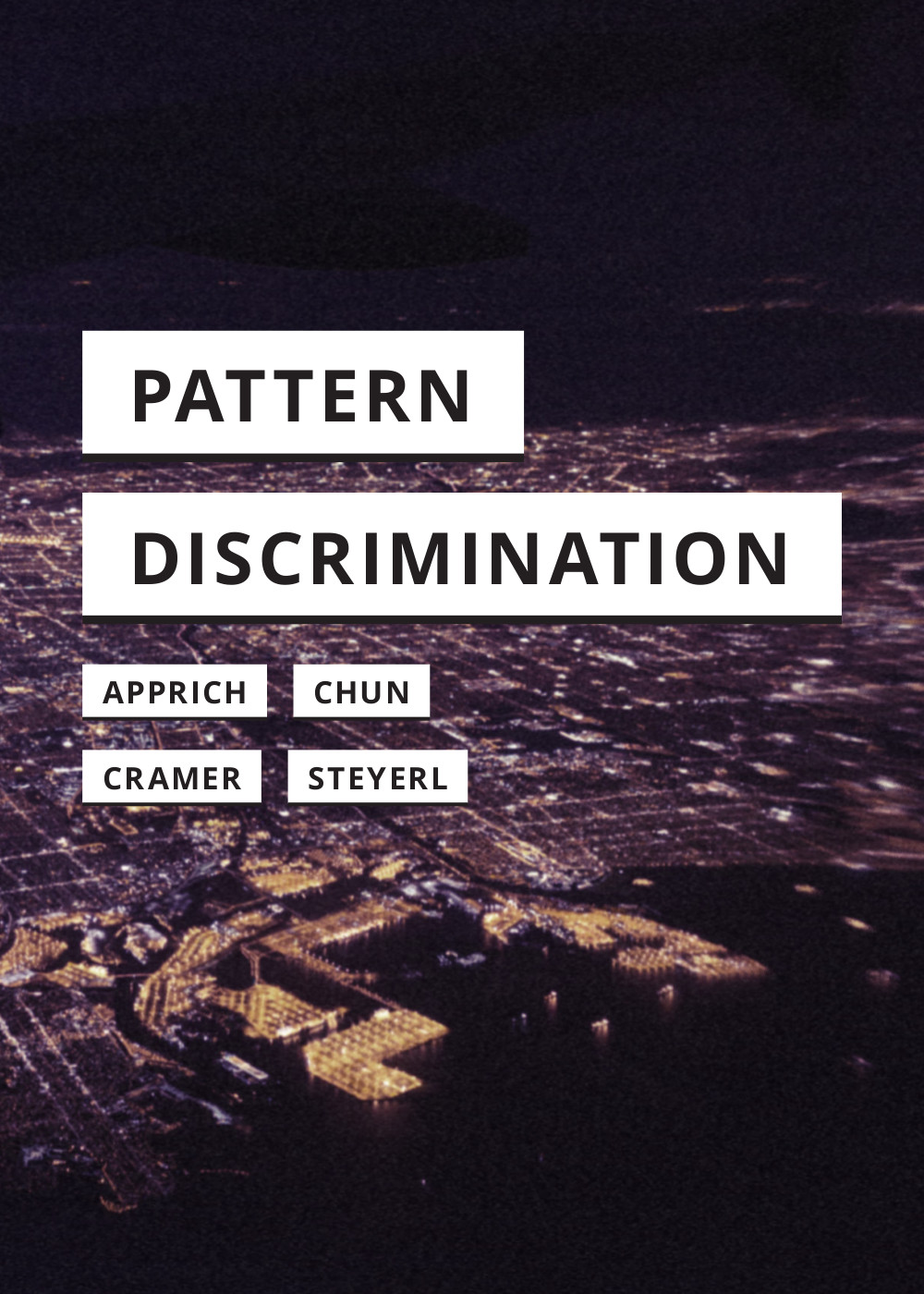Eyal Weizman: Forensic Architecture: Violence at the Threshold of Detectability (2017)
Filed under book | Tags: · anthropology, architecture, forensics, human rights, israel, law, palestine, politics, violence, war

“In recent years, a little-known research group named Forensic Architecture began using novel research methods to undertake a series of investigations into human rights abuses. Today, the group provides crucial evidence for international courts and works with a wide range of activist groups, NGOs, Amnesty International, and the UN.
Beyond shedding new light on human rights violations and state crimes across the globe, Forensic Architecture has also created a new form of investigative practice that bears its name. The group uses architecture as an optical device to investigate armed conflicts and environmental destruction, as well as to cross-reference a variety of evidence sources, such as new media, remote sensing, material analysis, witness testimony, and crowd-sourcing.
In Forensic Architecture, Eyal Weizman, the group’s founder, provides, for the first time, an in-depth introduction to the history, practice, assumptions, potentials, and double binds of this practice. The book includes an extensive array of images, maps, and detailed documentation that records the intricate work the group has performed.
Included in this volume are case studies that traverse multiple scales and durations, ranging from the analysis of the shrapnel fragments in a room struck by drones in Pakistan, the reconstruction of a contested shooting in the West Bank, the architectural recreation of a secret Syrian detention center from the memory of its survivors, a blow-by-blow account of a day-long battle in Gaza, and an investigation of environmental violence and climate change in the Guatemalan highlands and elsewhere.
Weizman’s Forensic Architecture, stunning and shocking in its critical narrative, powerful images, and daring investigations, presents a new form of public truth, technologically, architecturally, and aesthetically produced. Their practice calls for a transformative politics in which architecture as a field of knowledge and a mode of interpretation exposes and confronts ever-new forms of state violence and secrecy.”
Publisher Zone Books, New York, 2017
ISBN 9781935408864, 1935408860
355 pages
Reviews: Regine Debatty (We Make Money Not Art, 2017), Adam Rothstein (New Scientist, 2017), Sława Harasymowicz (Journal of Visual Culture, 2017), David Huber (Artforum, 2017), Joseph Confavreux (Mediapart, 2017, FR), Felix Bazalgette (New York Review of Books, 2018), Martina Tazzioli (Radical Philosophy, 2018), Noah Chasin (Springerin, 2018), Bernard Hay (Review 31, 2018), Anna Altman (n+1, 2018), Viktoriya Yeretska (BauNetz, 2017, DE), Erick Villagomez (Spacing, 2017), Andreas Petrossiants (Brooklyn Rail, 2018).
PDF (31 MB)
Comment (0)Evidentiary Realism: Investigative, Forensic, and Documentary Art (2017)
Filed under catalogue | Tags: · art, corruption, documentary, forensics, human rights, journalism, politics, realism, surveillance, truth

“Evidentiary Realism aims to articulate a form of realism in art that portrays and reveals evidence from complex social systems. The truth-seeking artworks featured explore the notion of evidence and its modes of representation.
Evidentiary Realism reflects on post-9/11 geopolitics, increasing economic inequalities, the erosion of civil rights, and environmental disasters. It builds on the renewed appreciation of the exposure of truth in the context of the cases of WikiLeaks, Edward Snowden, the Panama Papers, and the recent efforts to contend with the post-factual era.”
The exhibition was held at Fridman Gallery, New York, 28 February-31 March 2017, and Nome Gallery, Berlin from 1 December 2017-17 February 2018.
Curated and organised by Paolo Cirio.
Artworks by Nora Al-Badri & Nikolai Nelles, Amy Balkin, Sadie Barnette, Josh Begley, James Bridle, Ingrid Burrington, Hans Haacke, Khaled Hafez, Jenny Holzer, Harun Farocki, Navine G. Khan-Dossos, Thomas Keenan & Eyal Weizman, Mark Lombardi, Kirsten Stolle, Suzanne Treister.
Texts by Jaroslav Anděl, Sampada Aranke, Giulia Bini, Nijah Cunningham, Heather Davis, Blanca de la Torre, Lauren van Haaften-Schick, Natasha Hoare, Aude Launay, Susanne Leeb, Susette Min, Mary Anne Redding, Susan Schuppli, and Nicola Trezzi.
Publisher NOME, Berlin, 2017
Creative Commons BY-NC-ND License
ISBN 9780244342739, 0244342733
171 pages
Project website
Curator, exh. reviews
WorldCat
Clemens Apprich, Wendy Hui Kyong Chun, Florian Cramer, Hito Steyerl: Pattern Discrimination (2018)
Filed under book | Tags: · algorithm, artificial intelligence, crapularity, data, identity, politics, race, racism, segregation, web

“Algorithmic identity politics reinstate old forms of social segregation—in a digital world, identity politics is pattern discrimination. It is by recognizing patterns in input data that Artificial Intelligence algorithms create bias and practice racial exclusions thereby inscribing power relations into media. How can we filter information out of data without reinserting racist, sexist, and classist beliefs?”
Publisher meson press, Lüneburg, in collaboration with the University of Minnesota Press, 2018
In Search of Media series
CC-BY-NC 4.0 International License
ISBN 9781517906450
xii+123 pages
Reviews: Nicola Bozzi (Theory, Culture & Society, 2019), Ulrike Wirth (rezens.tfm, 2020, DE).
Comment (1)
